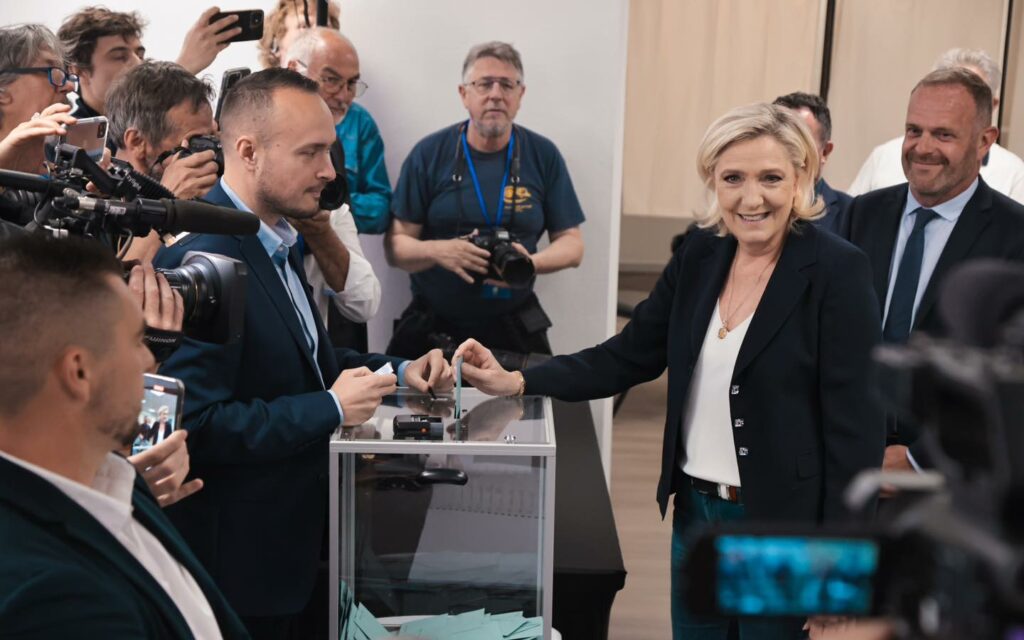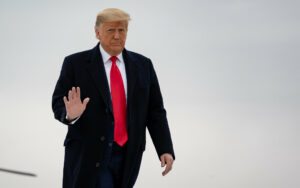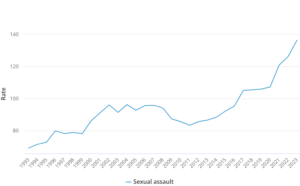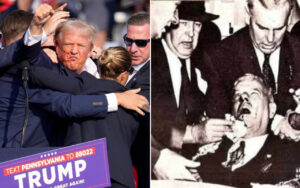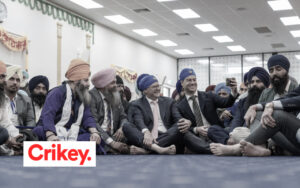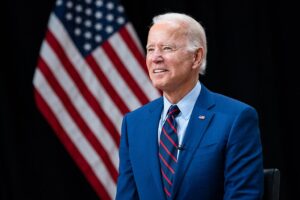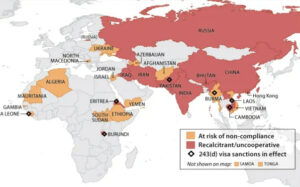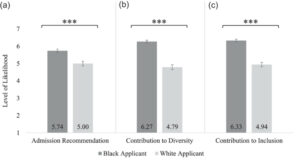Global media outlets are discussing the importance of recent elections in France, Britain and Iran as if they are groundbreaking developments.
On the surface, there were notable surprises. In both France and the UK, the right-wing — split in half into conservative and “populist” camps — suffered outcomes that ranged from disappointing to devastating. In Iran, the country’s first ever non-Persian president was narrowly elected on a platform of restoring ties with the United States and Europe, as well as implications that he will liberalise some of the nation’s domestic laws governing hijab-wearing.
Yet in all three cases, nothing major is expected to change. The Labour and Conservative Party in Britain have largely converged on issues such as foreign policy and immigration. In France, the parliament will be split between leftists, neo-liberals, and Marine Le Pen’s National Rally, making it likely that Macron will either keep the current gay Jewish Prime Minister Gabriel Attal, or appoint a caretaker government after meeting with his American backers at the upcoming NATO summit. In Iran, incoming “reformist” president Masoud Pezeshkian has already began distancing himself from his campaign promises and deferred to the nation’s Guardian Council regarding plans to continue deepening ties with Russia and continuing to fully support Hezbollah, Hamas and the Houthis.
Business is expected to continue as usual, but there are still some takeaways worth discussing.
Britain
The British Conservative Party’s 14-year rule was brought to an end last week in the Tories’ worst performance in their two-century history.
Under the Conservatives, mass migration has reached record numbers and the stagnant British economy has been downgraded by some to “emerging market” status. Adding insult to injury, the Tories have effectively transformed Britain into a vassal of the United States, following Washington into the Red Sea debacle against the Houthis, emptying their armoury to support the Ukraine’s flailing war effort, and joining AUKUS, a Pacific facing military alliance aimed at antagonising China, the UK’s fifth largest trade partner.
Nigel Farage’s Reform Party, which apparently ran fake A.I. generated candidates to vacuum the anti-immigration protest vote, successfully carved out 14.3% of the vote to Rishi Sunak’s 23.7%. The Reform Party’s performance relative to the Tories should be seen as a resounding rejection of the latter, but thanks to the “first-past-the-post” system designed to protect the UK’s duopoly, Sunak’s conservatives were still able to net 121 seats to Farage’s meagre five.
Keir Starmer’s Labour Party was able to capitalize on Sunak’s abysmal performance by winning 33.7% of the vote, a modest increase over Jeremy Corbyn’s 32.1% in 2019, though Starmer won fewer votes overall than Corbyn.
Britain’s new Prime Minister, who does not appear to have any grassroots support, has spent his tenure making the Labour Party palatable to the British establishment by engaging in a wave of internal purges of anti-war and anti-Zionist voices, which the Jewish press in Britain characterised as “anti-Semites.” The end-result could comfortably be described as the return of Tony Blair, the architect of New Labour and the most despised Prime Minister in British history.
During debates, it was difficult to distinguish between Labour and the Tories. Starmer’s new foreign secretary, a black man named David Lammy, has been described as a foreign agent with a single-minded focus: to further the political and economic interests of the US government and Wall Street in London. John Healey, the new regime’s defence secretary, is a career warmonger who enthusiastically supported the 2003 Iraq war.
Domestically, Starmer’s cabinet is expected to use its technical victory as permission to continue or accelerate all of the Conservative Party’s policies restricting freedom of speech, inviting massive waves of immigration, and cannibalising the British economy for the benefit of the Washington and New York elite.
France
The disappointing result of Jordan Bardella’s National Rally has been hailed as a defeat of fascism, but this theatrical declaration could not be more far removed from the facts.
The surging coalition of communists and Greens in the New Popular Front, Emmanuel Macron’s “Together,” and Jordan Bardella’s National Rally overlapped on many policy positions, particularly on the matter of the Ukraine war.
Bardella, who is known as the “Tik Tok King” due to his popularity on social media, has embraced Giorgia Meloni as his model. Meloni has mastered the art of masking her government’s Macronist liberal policies with largely aesthetic, watered-down verbal appeals to Italian nationalism.
Under Bardella, the National Rally — which was co-founded by a member of the Waffen-SS and was once known for its anti-Zionism and Gaullist anti-Americanism — spent much of this election cycle aggressively pandering to Jews and big business. This turned out to be a bad gamble, as these forces already enjoy the full acquiescence of Macron without any of NR’s baggage.
The young technocratic leader did away with Le Pen’s 2022 platform, which combined radical socialist proposals with an anti-immigration stance, and instead expressed support for most of Macron’s highly unpopular pro-business economic reforms. NR has also caused tension with activists of its own party by announcing that they will continue French support for the Ukraine war and weaken plans to support national industries.
Bardella’s waffling on economic issues came in response to bad faith public statements from the European Central Bank, which strongly implied it would destroy France’s bond markets if they committed to NR’s left-leaning economic reforms. The threat is an absurdity, as destroying the French economy would bring the Euro down with it. As Politico has written, the European Commission has been happy to accommodate liberal leaders when they engage in deficit spending, but they have sought to tip the scales in national elections within the bloc by tactically attacking the promises of “populists” in order to cause commotions in local economies.
As Bardella and Le Pen backtracked to calm markets, a hastily cobbled together coalition of Marxists led by Jean-Luc Melenchon jumped in to overshadow NR with promises to reduce the retirement age to 60, massive progressive taxation programs and subsidies, unprecedented increases in wages, and other farfetched promises that would be impossible to deliver without a full-blown revolution in France’s economic and political system. Unlike Bardella, when Melenchon was confronted with questions about European Union budget regulations and a potential market crash, Melenchon remained steadfast and promised to defy all of these threats.
The left-wing NFP, who now wield a parliamentary plurality, largely agree with NR and Macron on other issues. Melenchon, who like Le Pen once also campaigned against NATO and Israel, now shares the NR’s position on supporting the Ukraine war, embraces America and Brussels, and has significantly watered down its anti-Israel stance to the point where it is inconsequential. Centrists and conservatives tactically withdrew their candidates in 200 races to back NFP communists in order to contain the successes of the NR ticket from winning.
Some French commentators have pointed to Le Pen and Bardella’s moderation — “de-diabolisation” — having diminishing returns. The French establishment has toned down its hysterical opposition to Le Pen, which has harmed the latter’s anti-establishment potential. For example, an ambitious plan to end birthright citizenship was largely dismissed, as analysts have promised that French courts would quickly strike such a law down as unconstitutional.
NR was by far the most pro-Israel party in the recent campaign, with discourse more radical than avowed Zionist Macron. Bardella and Le Pen managed to win the dubious endorsement of Israeli government officials, but this turned out to be toxic in the eyes of voters. The overwhelming majority of French voters are either anti-Israel or completely neutral on the Israel-Palestine conflict, making the self-proclaimed “France First” party’s obsession with Israel strike many as bizarre.
With no group winning a clear majority and no coalition in sight, a new French government is unlikely to form. This means that France will lack any clear authority or direction on domestic issues, which are controlled by the parliament and Prime Minister, while Macron will wield his presidential powers on foreign policy and national security matters undisturbed for the next three years.
Iran
Pro-US reformist Masoud Pezeshkian won a narrow victory over conservative opponent Saeed Jalili in Iran’s presidential elections last week.
Pezeshkian, who is half Azeri and half Kurdish, is the first non-Persian leader in Iran’s history. His victory was driven largely by Azeri and Kurdish ethnic minorities, who make up 26% of Iran’s population, alongside middle class urban liberals.
Iran’s new leader, backed by previous president Hassan Rouhani who was heavily discredited when Donald Trump unilaterally pulled out of the nuclear agreement, made impossible campaign promises to restore American and European investment in the country while still opposing Israel. Pezeshkian has promised to grow the Iranian economy by 8% by removing Iran from the International Financial Action Task Force blacklist. He has also implied that he is willing to reduce enforcement of the country’s hijab law, as well as lift the internet filter intercepting American, Israeli and European misinformation.
The reaction from relevant players to Pezeshkian’s victory suggests he may be controlled opposition, similar to anti-establishment branded figures in Western democracies. Iranian elites appear content to see him attract high electoral participation of Azeris and Kurds, two ethnic groups utilized by Israel and the United States to wreak havoc inside Iran, as they usually boycott the country’s elections to tactically discredit the Islamic Republic’s system. Western commentators have emphasised that voter turnout was relatively low at 50%, but this was not much lower than the UK’s 60%.
The US has already rejected Pezeshkian’s overtures. The US government has made it clear that their problem with Iran is not rooted in their view of America, but rather their opposition to Israel. America’s support for Israel and Iran’s opposition to Israel are both products of their respective permanent bureaucracies and not up for referendum.
Israel’s Foreign Minister Israel Katz has interpreted the dovish Pezeshkian’s victory as a sign of Iranian weakness and is calling for the West to apply even greater pressure on Tehran. But the new president is an unambiguous supporter of the Axis of Resistance and the Palestinian cause. Though his campaign signalled an attempt to steer the country away from Russia in hopes of winning economic concessions from the European Union, he has already started backtracking on this promise in his first phone call with Vladimir Putin, where both men signalled readiness to sign a comprehensive pact at the upcoming BRICS summit in October.
Pezeshkian may turn out to be a “reverse Meloni,” loyal to the Iranian deep state though at times rhetorically critical. Iran experts expect him to rearrange furniture to pull angry Kurds and Iranians thirsting for dollars and Euros out of the CIA’s orbit, but without changing the country’s geopolitical trajectory.
This article originally appeared on Littoria and is republished by The Noticer with permission.
